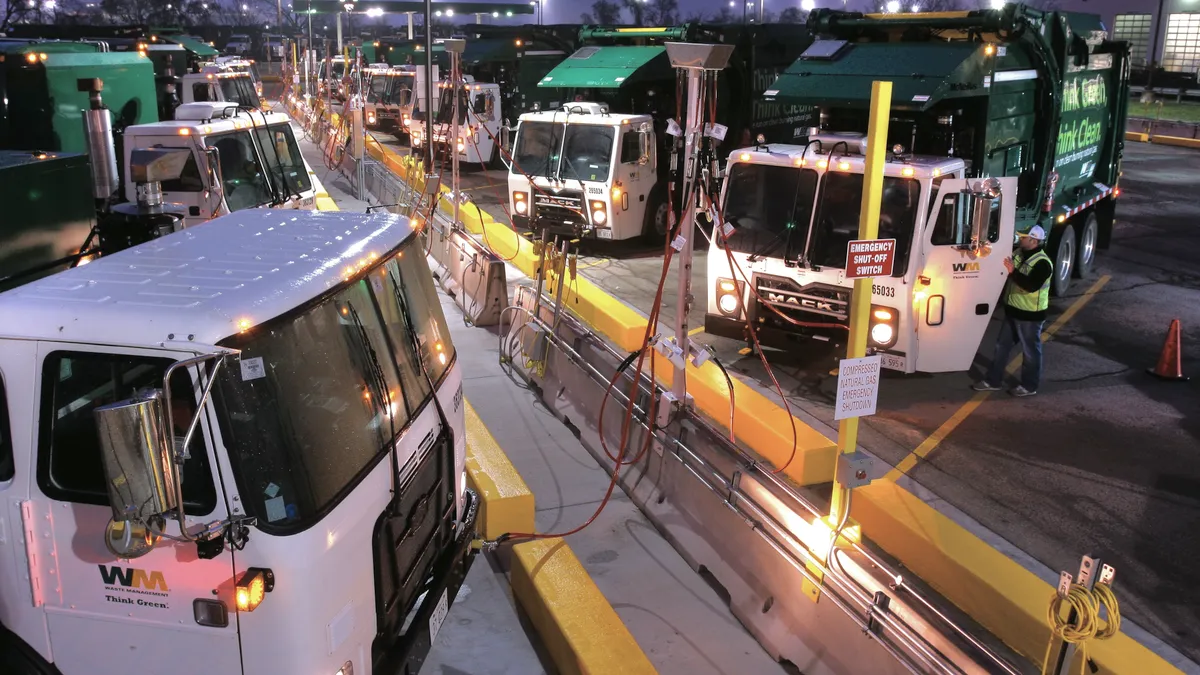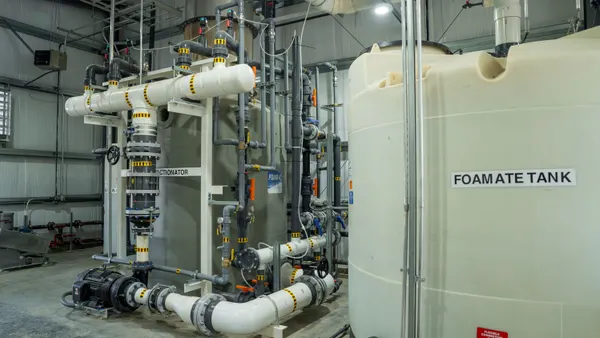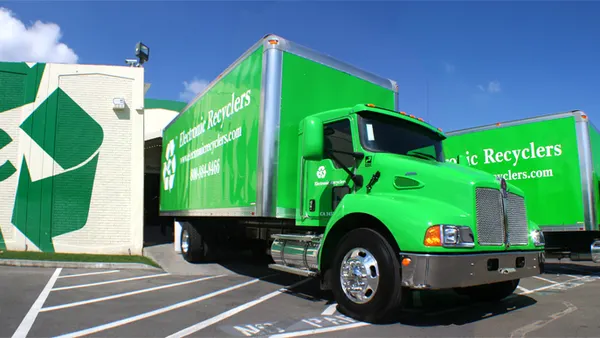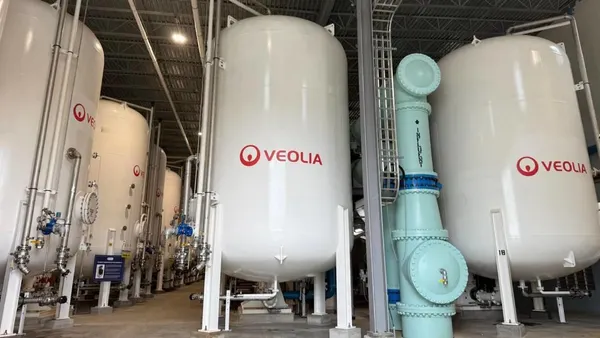Dive Brief:
- The COVID-19 pandemic did not stop the momentum for clean technologies and fuels among medium- and heavy-duty fleets, including fleets in the waste sector, according to the 2021 State of Sustainable Fleets report that consulting firm Gladstein, Neandross & Associates (GNA) released last week.
- While the report covers growth in four categories — propane, natural gas, battery-electric, and fuel cell electric vehicles — refuse fleets are playing a particularly important role in the rise of compressed natural gas (CNG) vehicles, analysts found.
- Waste Management Chief Operating Officer John Morris said at a virtual event coinciding with the report’s release that the company remains a strong proponent of CNG. “We're going to continue to buy predominantly CNG where the opportunity exists," he said. Waste Management expects 80% of its collection fleet will be operating on CNG within five to seven years, a spokesperson confirmed, up from 70% of its routed fleet now.
Dive Insight:
The report suggests that fleet operators that have tried alternative vehicle and fuel types will continue to grow use of those technologies. Among the refuse entities and their transit, delivery, and regional- and long-haul counterparts that have been "early adopters" of sustainable technologies, over 80% of those surveyed indicated they intend to further grow their use of such technologies in the next five years.
The report states that CNG, on average, provides a greenhouse gas emission reduction of 11% for refuse vehicles. In general, while the environmental sustainability of these vehicle alternatives is key, economic sustainability is also critically important, said GNA CEO Erik Neandross.
Regarding CNG specifically, surveyed users indicated reduced emissions, fuel cost and driver safety as the top areas for which CNG had equal or better performance than diesel. On the flip side, vehicle cost is a main barrier to adoption, followed by maintenance cost and total cost of ownership more broadly.
Morris said Waste Management has likely spent at least $2.5 billion to date on its CNG fleet and some $300 million on infrastructure, installing CNG stations around the country.
“Even prior to our acquisition of Advanced Disposal, we were closing in on 75% of our kind of routed vehicles on the street every day running on CNG — the collection heavy-duty cycle trucks. That number dipped a little bit down, obviously, with the acquisition of Advanced; they were on a similar path, just a little bit further behind us, so we're probably hovering at about 70%,” Morris said, echoing figures CEO Jim Fish shared on the company’s recent earnings call. In 2019 the company committed to 70% of its collection fleet being alternative fuel vehicles by 2025.
Morris added: “But I will tell you that our strategy since the acquisition of Advanced is not changing around CNG: We're going to continue to drive that number up." Waste Management spokesperson Janette Micelli confirmed following the event that 70% of the company's routed trucks are CNG trucks.
In addition, Micelli said 55% of the company's CNG trucks are using renewable natural gas now, and the company anticipates 70% of its CNG trucks will run on RNG in the next five years.
Waste Management has cut fleet emissions 36% since 2010, recently named Chief Sustainability Officer Tara Hemmer said at a separate conference KeyBanc hosted on Tuesday.
Having the infrastructure to support a CNG fleet "can be a challenge in some locales" but is "pretty prevalent," Morris said. Questions remain about electric vehicle infrastructure, he said.
The report does not list the waste sector as a leading adopter of battery electric vehicles, unlike transit, school, delivery, shuttle and regional goods sectors. On the electric front, the report highlighted Mack’s efforts to get its LR electric refuse truck to market after private and public sector demonstrations with Republic Services and the New York Department of Sanitation. Morris called Mack’s electric technology “impressive” but noted that Waste Management has to ensure such technologies are advanced enough to avoid any service disruptions.
The refuse trucks category lags behind other vehicle types — from buses to vans to chassis cabs — in numbers of different electric vehicle models being produced.
Still, Waste Management, Waste Connections and others have all ventured into some electric pilots. And some municipalities have recently announced their own electric garbage truck purchases. Fairfax County, Virginia, will pilot four electric garbage trucks as part of a grant through a state clean air program, following steps this year by Santa Cruz, California; Charleston, South Carolina; and Pittsburgh to employ electric refuse trucks.











